The General Synod of the Anglican Church of Canada, bringing together church people from across Canada, met in July for six days in Vancouver.
Read the Anglican Journal for their comprehensive coverage of this special gathering.
However, the Niagara Anglican sought the unique impressions, findings, experiences and perspectives of the delegates representing Niagara Diocese.
Here are samplings of their responses, edited for space.
If you wish to read the delegates’ full replies, contact the Editor who will forward your request to the individuals so they can respond to you directly.
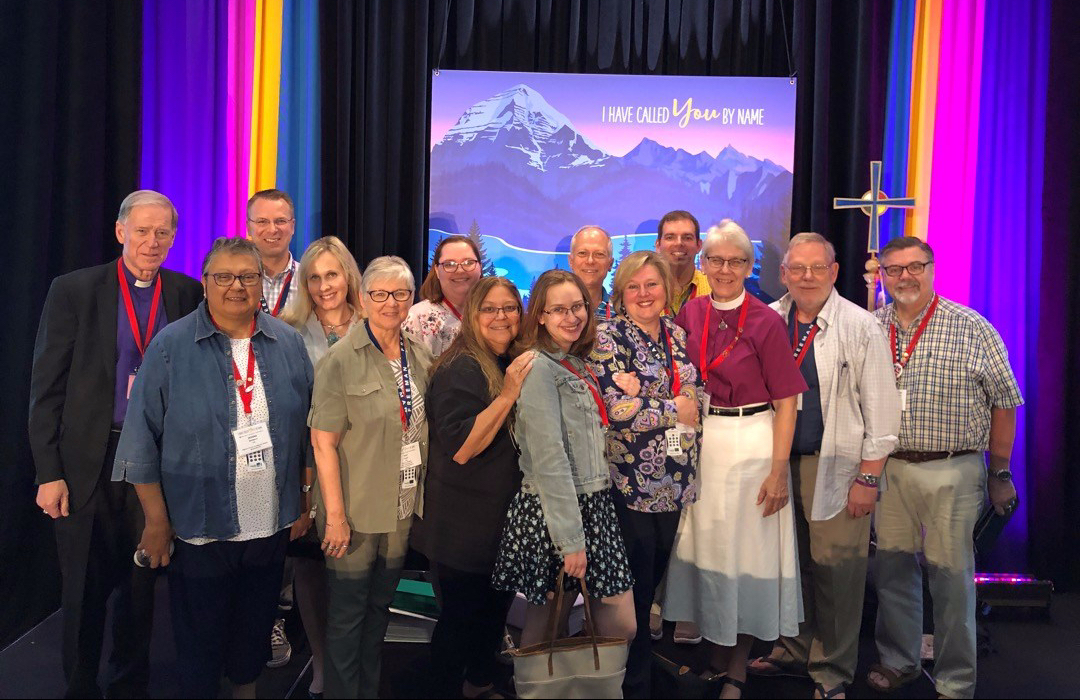
Niagara Anglican: What impressed you most about general synod?
Archdeacon Valerie Kerr:
Several things impressed me about GS2019.
The planning and implementation of gathering over 200 people together in one place was a start. Congratulations to those who looked after such a diverse group of people so well.
In an historic vote, General Synod almost unanimously approved changes to Canon XXII that enabled a self-determining Indigenous church within the Anglican Church of Canada, and to bestow the title of Archbishop upon National Indigenous Bishop Mark MacDonald (ranks among the metropolitans).
General Synod approved full communion between ACC and the U.S.-based Episcopal Church, the Evangelical Lutheran Church in Canada and the Evangelical Lutheran Church in America.
The Reverend Canon Bill Mous:
The generous and warm hospitality extended by the Diocese of New Westminster was extraordinary.
The synod was situated in downtown Vancouver and created a space where we could gather for the intense discernment and decision-making that unfolded but also find occasional moments of refuge in the surrounding neighbourhood in order to retreat from some of that intensity.
What was perhaps most impressive, however, was the beautiful worship which unfolded over our time together. The music, bible studies and liturgies grounded the synod and its members in wonder, love and praise of God.
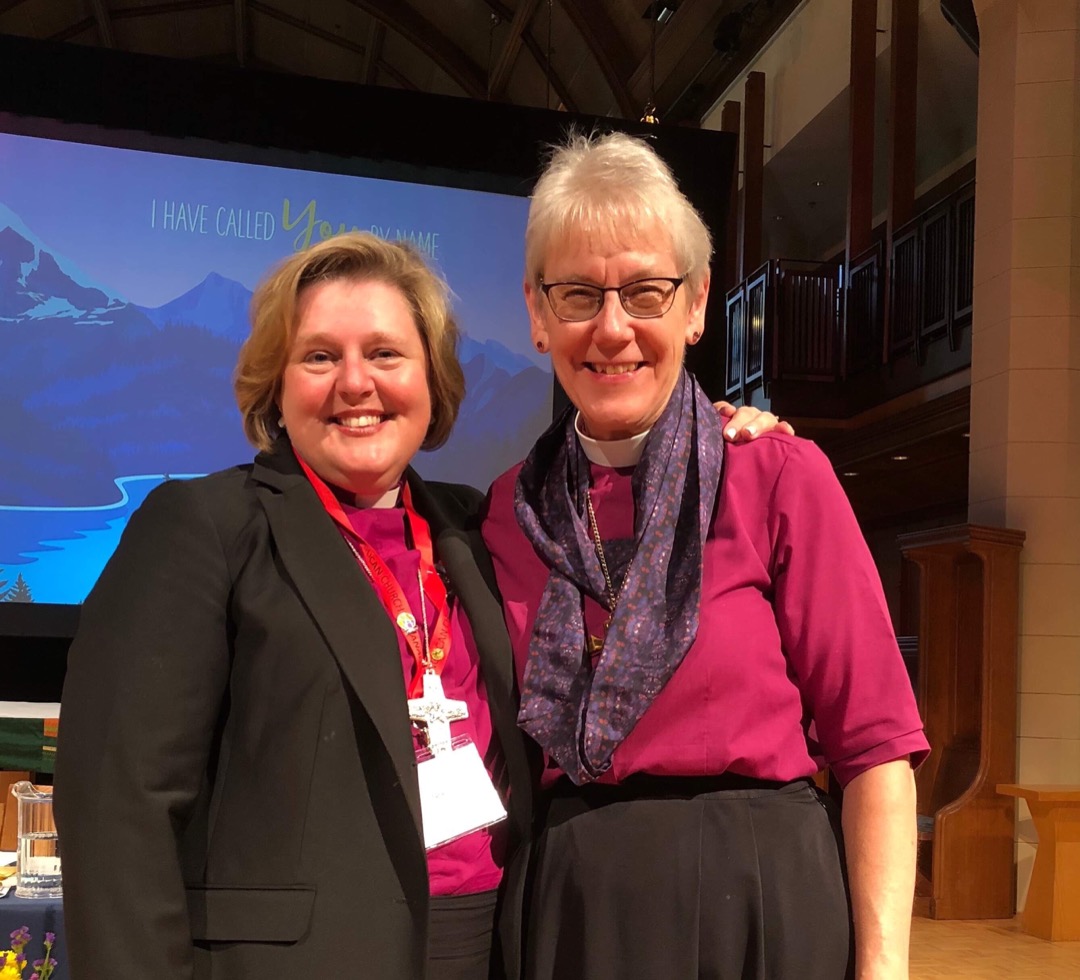
Canon Pat Davis:
The planning and organization did an awesome job — ensuring the days were calm and ran smoothly — keeping with the theme, I Have Called You By Name.
The prayer like hymns always suited the agenda and kept us mindful of the theme. All the speakers spoke about living and acting in love, honour and respect.
So many wonderful uplifting things happened, including the Primatial Message, The Anglican Council of Indigenous People delegation being voted in as members of General Synod (received with a standing ovation), viewing The Doctrine of Discovery, Strong Hearts, Stolen Lands, many outstanding speakers, passing the Affirmation Statement and so much more.
Andrew Clinkard:
What impressed me was the deep Christian faith and love for our church shown by all delegates. It was contagious!
The spirit filled liturgy was uplifting, the agenda well crafted and the speakers excellent — befitting the theme I Have Called You By Name.
I was very impressed with St. Thomas’ Church Vancouver where a handful of delegates attended … the worship and fellowship were priceless.
During that service my anger over the vote on the marriage canon was washed away.
Holding General Synod in such a beautiful setting — beach, ocean, forest and mountain —was awe inspiring and helped make me feel closer to God.
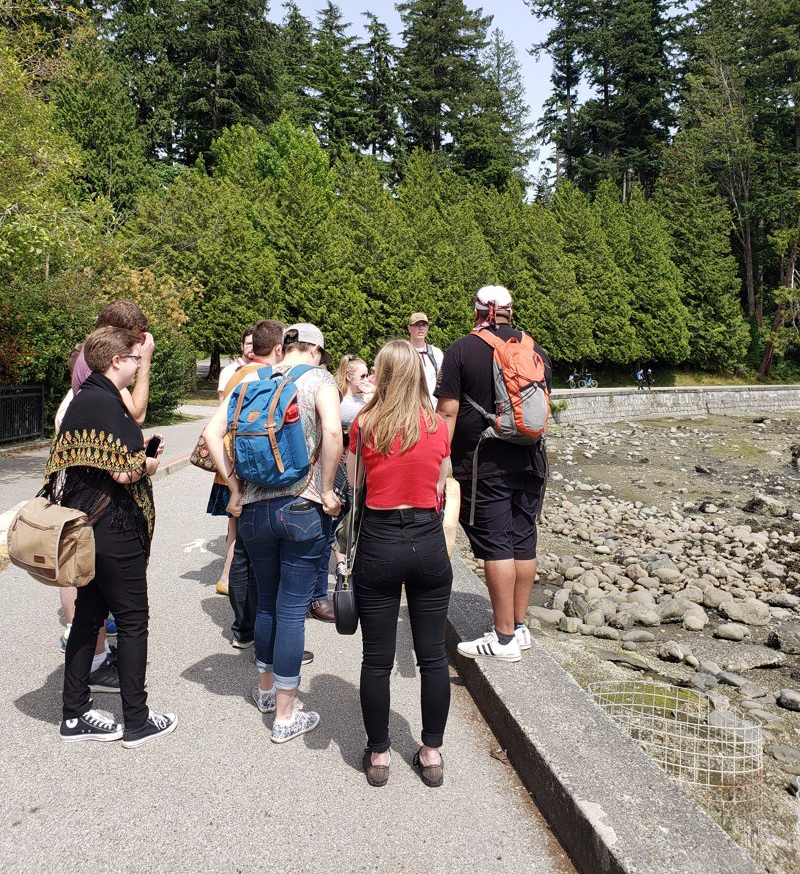
Youth Delegate Claire Christoff:
The aspect of General Synod which impressed me the most was the sense of community, of being one with the Holy Spirit.
I heard that in 2016 there was a clear division of members of general synod regarding positions on the marriage canon, and much hostility. While I cannot deny the tension and disagreement, there was that sense of community and support, nevertheless.
Within my own group of youth delegates, with whom I spent what felt like an eternity, we were strongly divided on this issue, but like much of General Synod as a whole, we were still a tight knit, happy group.
Niagara Anglican: What was a disappointment or low point for you?
Youth Delegate Claire Christoff:
For myself, as a queer youth in the church, the lowest point of synod was hearing the cries of my fellow LGBT+ siblings, as the painful results of the vote came through.
Though the local option is now our church’s reality, nothing has broken my heart more than those rainbow tears.
The Reverend Canon Bill Mous:
Friday, July 12, about 9:36 p.m. local time was the low point of General Synod. It was in this moment that the results of the vote on the amendment to the marriage canon vote were announced. They were greeted with a mixture of the soul-piercing wails, loud sobs and stunned silence from members of synod.
Within moments, the Primate invited the General Synod chaplain to lead us in prayer. As the shock of the results began to truly sink in, a deep sense of sadness, disappointment and shame encompassed many of us in the room.
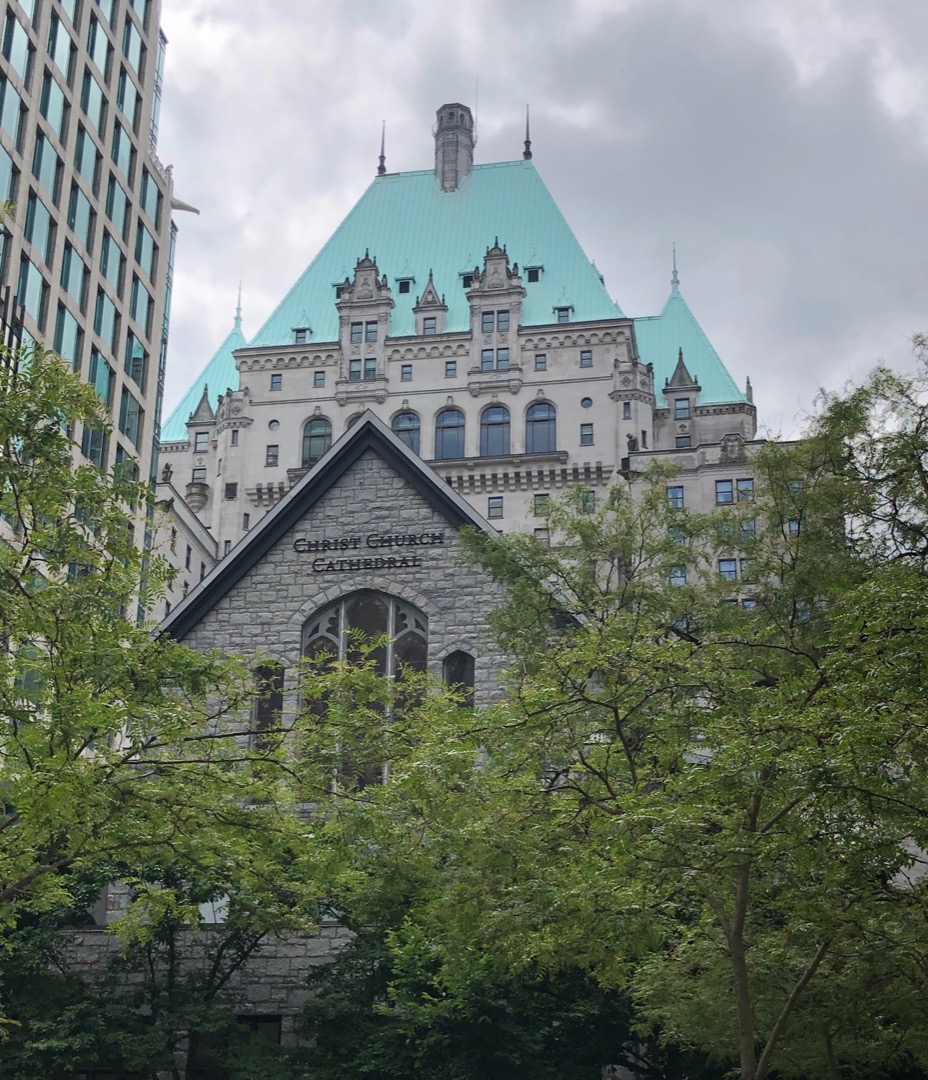
Archdeacon Valerie Kerr:
My disappointment was the discussion around the change of the marriage canon.
It pains me to hear people state “I/we love you but”. What I hear is we love only the parts of you we agree with. I always maintained we do not have to agree with each other to love each other unconditionally. We are a diverse church and bound to have differences of opinions. My fear is some believe there is only one way and it is their way.
My hope is each person remembers how Jesus loved without boundaries. As Bishop Mark said in his homily, “the church must be a community of openness to all people, in a way that we never have been before”.
Andrew Clinkard:
The low point for me was the debate on the Friday evening over the motion to amend Canon XXI — the Marriage Canon, and the resulting vote.
The debate became rancorous at times, and when the voting results were released, and I saw the motion had failed in the House of Bishops I was furious. It felt to me at the time as though the Bishops who had voted no were bringing on a Gotterdammerung of the Anglican Church.
I was in a negative frame of mind until Sunday worship.
Canon Pat Davis:
That the vote on the motion to amend the marriage canon (Canon XXI) failed and that the Primate had to read a statement from the House of Bishops acknowledging the hurt and harm they had done.
There was honourable intent in this, but it did not change anything in that order.
It was also disappointing that a few of the bishops did not stand as requested by the Primate.
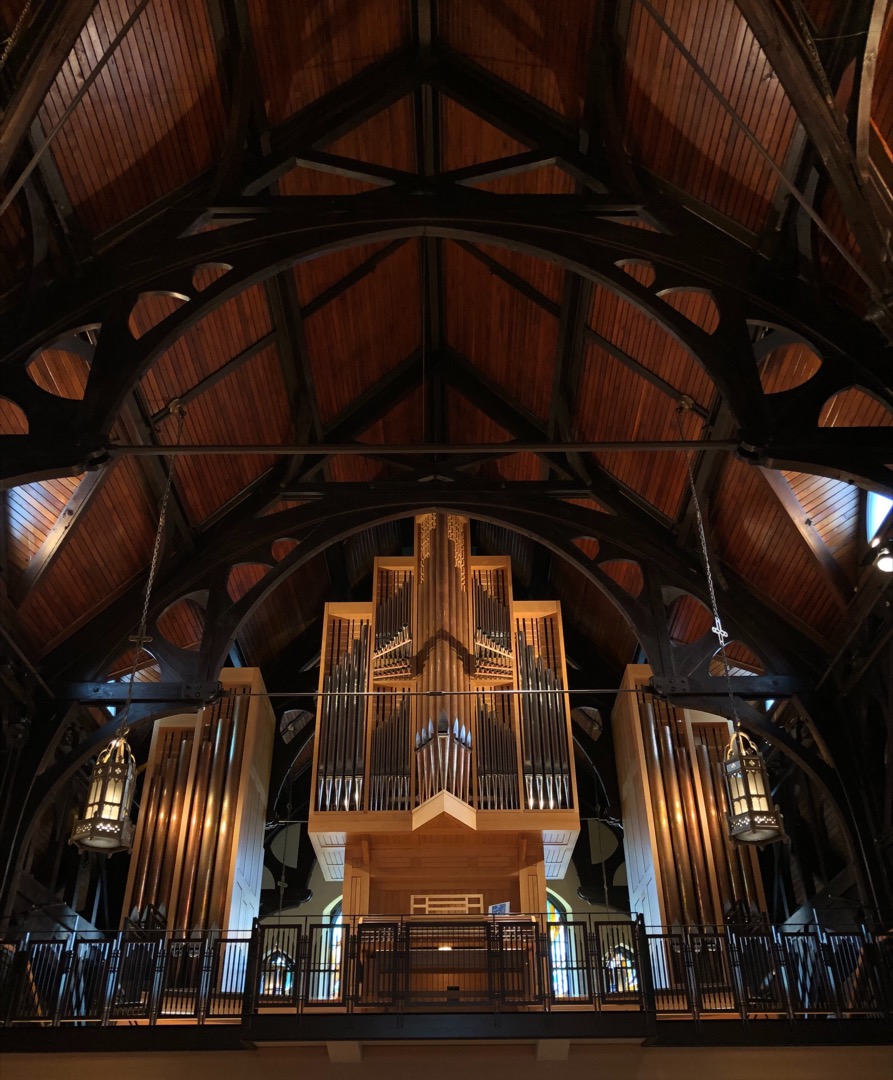
Niagara Anglican: What did you bring back from general synod that will help in your parish or Niagara diocese?
Canon Pat Davis
The theme of General Synod — I Have Called You By Name —will be most helpful to us as a diocese and a parish to focus us on our direction forward. As long as we can be reminded that love, honour and respect are the keys to moving forward with dignity and compassion.
We will continue to move forward with our support and love for the LGBTQS2+ community and proceed as before with marriage equality and welcoming all people into our parishes.
The Reverend Canon Bill Mous:
One of the things General Synod quietly affirmed was the Arusha Call to Discipleship which emerged from the World Council of Churches’ Conference on World Mission and Evangelism.
There seems to be a great deal of synergy with this initiative and Bishop Susan’s focus on faith formation, renewal and mission. In the coming years, look for context resources from the national church to support this call to discipleship and baptismal living.
Youth Delegate Claire Christoff:
I have brought back a greater understanding of what the national church looks like, and how our diocese differs from and relates to those from coast to coast.
I think this expanded perspective of mine and the countrywide connections I have made will allow me to serve the diocese with a more open mind and new ideas.
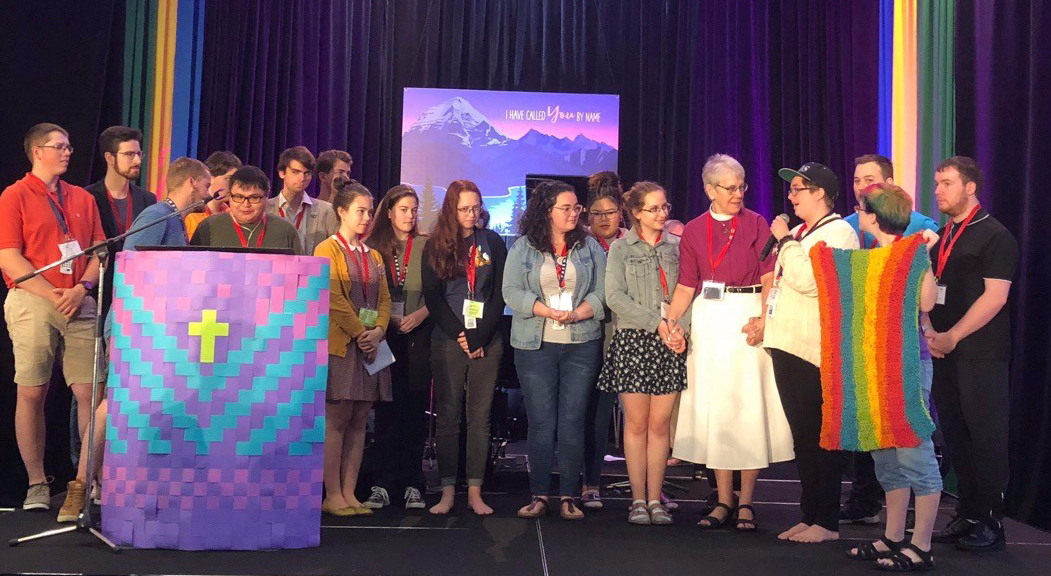
Andrew Clinkard:
It provided me with opportunities to gain a greater understanding, appreciation and respect for the depth and breadth of the Christian faith as exemplified by our Anglican Church.
After having conversations with Anglicans from across Canada it finally dawned on me that not every congregation or diocese was in favour of changing the marriage canon — it wasn’t just a few cranky bishops who were opposed.
I pray Anglicans on every side of the marriage canon debate can find with God’s help the faith and strength to stay together and show love and respect as we move forward together on a journey just begun.
Archdeacon Valerie Kerr:
I brought back more hope. Hope for an ever-changing church, for people living on the margins and for those whom we see as “different”.
One challenge is the decline in membership although in some places we have growing churches. Just replicating what growing parishes are doing will not always work.
We can try what others are doing; however, we need to get out into communities and listen to what their needs are. We can’t continue to do “church” from within our buildings only.
I view it as an opportunity to meet people where they live and help people get to know us on a more personal level.
Niagara Anglican: What decisions will impact Niagara Diocese and how?
Andrew Clinkard:
The motion that passed allowing a “local option” is a significant breakthrough from a national perspective, and for the many dioceses that have or are considering moving forward with the local option on same sex marriage.
I hope the people of Niagara gain some measure of comfort that Anglicans in some other dioceses will have the same marriage rights Niagara Anglicans have enjoyed for three years.
The election of a new Primate and indeed the first woman, is another large step forward, particularly as one of the new Primate’s last acts as Bishop of Huron was deciding to go ahead with same sex marriage in Huron.
Youth Delegate Claire Christoff:
The two major decisions which were discussed in Vancouver were the marriage canon and the self-determining Indigenous Church.
Our Bishop’s perspective on the marriage canon is not news for our diocese, and I do not believe this decision will impact us greatly.
However, with the support from General Synod of the Indigenous Anglican Church, I know that Archdeacon Val Kerr will be able to continue her important work. With the guidance of the newly named Archbishop Mark MacDonald, I hope our diocese will continue to support the growth of the Indigenous Church and support the work of Indigenous leaders in the church.
The Reverend Canon Bill Mous:
The election of Bishop Linda Nicholls to serve as our primate will guide the future direction of our Church in the coming years.
With approval at General Synod, parishes in Niagara now have access to a wide variety of new authorized collects and other liturgical resources.
Our commitment to the work of truth and reconciliation will be bolstered by the Primate’s Apology for spiritual harm to Indigenous peoples, and several resolutions related to self-determination.
The encouragement to curtail the use of single-use plastics at events will reawaken in us a long-standing call from the Greening Niagara committee to do just that.
Canon Pat Davis:
We have much rebuilding to do in the church.
The vote on Canon XXI and the unflattering media publicity it garnered spoke volumes to the world.
The “Affirmation” provided much hope for the future. I believe Bishop Susan will continue to be visible on social media and promote the message of our love, honour and respect for the LGBTQS2+ and all people.
Her sincerity and love of God and the teachings will remind the public of all the wonderful things that happened at General Synod, and how the church is always moving to make the world a better place for all to come to God’s love.
Resurrection of Hope in Thundering Waters